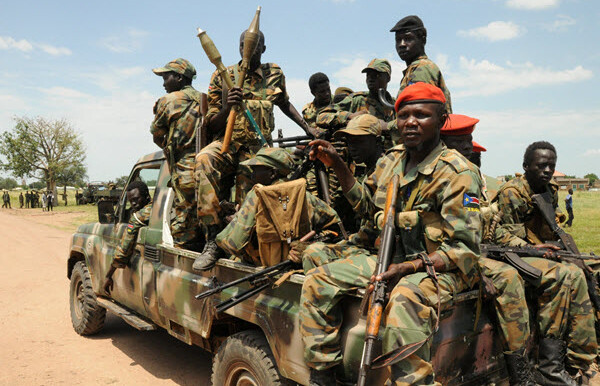The government has confirmed that the White Army militia killed more than 400 soldiers of the South Sudan People’s Defence Forces (SSPDF) in a deadly assault on the Nasir barracks nearly two months ago in Nasir County, Upper Nile State.
Speaking to the media on Saturday, April 26, the Minister of Cabinet Affairs, Dr. Martin Elia Lomuro, stated that tensions among the SSPDF, the SPLM-IO forces, and the White Army in Nasir have been long-standing.
However, he noted that these tensions escalated drastically in February 2025, setting the stage for the tragic events that followed.
“Tensions among the South Sudan People’s Liberation Defence Forces, the SPLM-IO forces, and the White Army in Nasir have been longstanding,” Dr. Lomuro stated. “In February 2025, these tensions escalated drastically.”
According to the minister, the Presidency convened an emergency meeting on March 3rd to assess the deteriorating security situation in Nasir.
According to Dr Lomuro, during this high-level session, it was confirmed that SPLM-IO leader Dr. Riek Machar had been in direct communication with several key figures in the conflict zone.
“These key figures included the paramount chief, youth leaders, SPLM-IO commanders, and other local actors on the ground,” Dr. Lomuro noted.
“Riek assured the former Chief of Defence Forces, General Santino Deng, that the White Army would lift the siege on our forces, return to their homes in the bush, and allow the SSPDF to access Nasir and evacuate our troops to Malakal.”
However, just one day later, on March 4th, the situation turned deadly.
“Despite these assurances, the White Army launched a brutal attack, resulting in the death of over 400 SSPDF personnel, including their commander, General David Majur Dak,” he said.
The government has responded swiftly, placing Dr. Riek Machar under house arrest and detaining several SPLM-IO leaders pending investigations into their alleged involvement in the deadly assault.
“This tragic incident has triggered a political crisis,” Dr. Lomuro warned. “It poses a serious threat to the Agreement on the Resolution of the Conflict in the Republic of South Sudan.”

